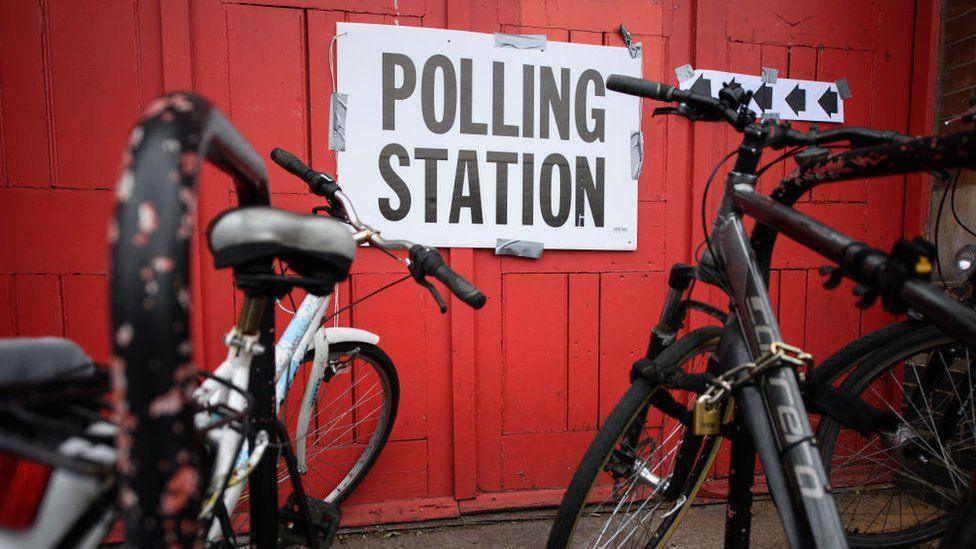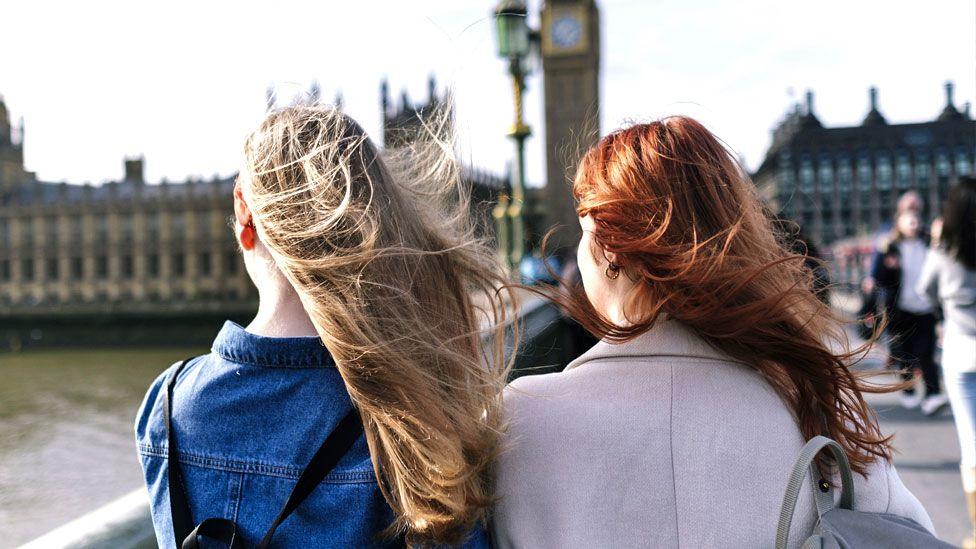When is the next UK general election?

- Published
The next UK general election must be held by 15 August 2029.
However, the prime minister can opt to call an election at any point before this.
Who decides when an election takes place?
UK general elections need to be held every five years.
The 15 August deadline for the next election is five years from the start of the current Parliament (9 July 2024), plus the time required to run an election campaign.
Although the prime minister now decides the date, this was not always the case.
In 2011, the PM's power to choose the date of the election was removed, and handed to the House of Commons.
Under those rules, an early election before the end of the five-year term could only be held under certain circumstances, such as if two-thirds of MPs agreed.
However, after winning the 2019 election, the Conservatives restored the PM's power to call the election at a time of their choosing within the five-year period.
How does the PM call a general election?
The PM formally asks the King to "dissolve" Parliament - the official term for closing Parliament ahead of an election.
The poll takes place 25 working days later - ie excluding weekends and bank holidays.
At the point of dissolution, the 650 MPs in the House of Commons lose their status and have to campaign for re-election if they wish to continue.
Government also enters a pre-election period which restricts ministerial and departmental activity during the campaign, to avoid influencing the outcome.
Can opposition MPs or members of the public force a general election?
The prime minister must have the "confidence" of the House of Commons to govern, which means they must be supported by a majority of MPs.
MPs can challenge the PM by holding a motion of no confidence vote, which lets politicians from all parties decide whether they want the government to continue.
If the leader of the opposition introduces such a motion, the government is expected to provide parliamentary time for a debate and a vote.
To succeed, the motion needs just one more MP voting in favour than against.
If the government loses the vote, a general election is usually called.
There is no constitutional mechanism for voters to trigger a general election.
For example, in January 2025, MPs debated an online petition which called for another election to be held, external, after it received more than three million signatures. However, the debate had no practical outcome.
Speaking for the government during the debate, Solicitor General Ellie Reeves said that "having secured such a resounding victory at [the 2024] general election, we have not only the right but the responsibility to implement our programme".
'Why I started petition for fresh general election'
- Published27 November 2024
How is the UK general election decided?
The UK is divided into 650 areas, called constituencies. Each of these elects an MP to represent local residents in the House of Commons in London.
On election day, registered voters in each constituency vote for their preferred candidate in their local polling station. Some people vote by post in advance.
Most candidates represent a specific political party, but some stand as independents.
In a general election, each person has one vote. Under a system called "first past the post", the candidate who gets the most votes becomes the MP for that area.
After the votes have been counted, the King typically asks the leader of the party with the most MPs to become prime minister and to form a government.
The leader of the party with the second highest number of MPs usually becomes the leader of the opposition.
If no party ends up with a majority of MPs - meaning it cannot pass legislation with just its own MPs - the result is a hung Parliament.
At this point, it is possible that the largest party could form a coalition government with another party or operate as a minority government, relying on votes from other parties to pass any laws.
What is the King's Speech and why is it important?
- Published17 July 2024
Who is Black Rod and what do they do in Parliament?
- Published17 July 2024
Who can vote in a UK general election?

It is not compulsory to vote in any UK election, including general elections. Anyone who wants to vote must join the electoral register, external.
Currently, you have to be 18 to vote in a general election.
But 16-year-olds can vote in local council elections in Scotland and Wales, as well as in elections to the Welsh Senedd and Scottish Parliament.
In July 2025, the government said that the voting age would be lowered to 16 for all elections across the UK before the next general election.
This means that anyone on the electoral register on polling day who is aged 16 or over will be able to vote as long as they are:
a British, Irish or qualifying Commonwealth citizen
resident at an address in the UK (or a UK citizen living abroad who has previously been registered to vote in the UK or has lived in the UK)
not be legally excluded from voting. This includes members of the House of Lords, and prisoners serving a sentence for a conviction
The Electoral Commission, which monitors UK elections, estimates that about seven million people cannot vote because they are incorrectly registered or missing from the electoral register.
To tackle this problem the government wants to create an automated voter registration scheme in the next few years, although people will be able to opt out if they wish.
How will votes at 16 and changes to voter ID work?
- Published17 July
Can I take children or pets to a polling station?
- Published29 April
What ID do you need to vote in a general election?
Since May 2023, voters in England have been required to show valid photo ID to vote in person in UK parliamentary elections, local elections and police and crime commissioner elections.
Voters in Scotland and Wales also need ID to vote in UK parliamentary elections. ID is also required for police and crime commissioner elections in Wales.
There are currently more than 20 acceptable forms of ID, external, including passports, driving licences, bus passes and Armed Forces Veteran Cards.
The government has said voters will also be able to use a UK-issued bank card as ID in future elections.
Anyone without valid ID can apply for a free document called a Voter Authority Certificate, external.
The rules are different in Northern Ireland, where voters have had to show photo ID since 2003.